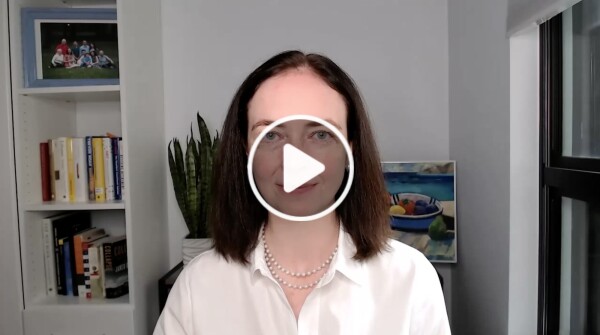The alternative to term life insurance is permanent life insurance.
Permanent life insurance pays a benefit WHENEVER you die (assuming you’ve paid the required premiums). There are different types of permanent life insurance, with names like "whole", "universal", and "variable", among others.
Good permanent life insurance policies can be a great choice for some people. However, the problem is that more people buy permanent life insurance than should have it. For more about the over-selling of permanent life insurance, check out our post, “Truth vs BS: the Inside Scoop on Popular Life Insurance Sales Lines”.
Our interactive Life Insurance Guide will ask you a few easy questions, and our algorithms will make suggestions, and explain those suggestions, based on what you share.
3 Situations When Permanent Life Insurance is Worth Considering
- You are clearly on track to have more wealth than you’ll need in your own lifetime, and you're ready to start funding your heirs' inheritance
* Permanent life insurance can be a useful tool for planning inheritance for your heirs. (There are other methods that don’t involve permanent insurance, but permanent insurance is worth considering.) - You own (or expect to inherit during your lifetime) a large asset, and your own heirs will get a big bill for estate taxes when it passes to them
Examples: a vineyard, a family farm, a privately held business
* When such an asset passes from one generation to the next, there can be a large estate tax bill. The IRS only takes money for payment of taxes (no wine or livestock accepted!), so permanent life insurance can be a good way to ensure that your heirs have the cash on hand to pay estate taxes
* You should work with a competent, trustworthy attorney in situations like this — the best solution often has a significant legal component, such as a trust - The timeframe for which you want insurance is in excess of 30 years, and you do not feel like "rounding down" to a 30 year term meets your needs
If this is your situation, then consider term policies that last until a specified age, too
If none of those applies to you, then term is almost certainly the best choice.
If at least one applies to you, term might still be the right choice, but it's worth considering permanent.
What You Should Expect with Permanent Life Insurance
Much Higher Premium Payments than Term
To give you some idea: a $1mm 20-year term policy for a healthy 35 year old costs about $400 / year ($8,000 lifetime payments if you choose to keep coverage for the entire 20 years). A $1mm permanent policy would typically cost anywhere from ~$4,000 - $8,000 / year, paid for 30 years (until age 65). That's $120,000-$240,000 in lifetime premium payments.
With permanent, the product you’re getting is fundamentally different from term: if you pay your premiums on a permanent policy, your heirs will receive the death benefit whenever you pass away.
With term, it’s most likely the insurance company will pay nothing, and that’s awesome, because everyone hopes you’ll outlive the term!
Permanent Might Resonate More with Your "Future Self"
Try to get in touch with that future you - many people become more interested in permanent insurance as they get older, and think more about their own legacy. The challenge is that permanent life insurance can be quite expensive as an older person. If you are on track to have as much money as you'll need in your lifetime, envision your future self: will you take joy in knowing that a clearly defined dollar amount has been set aside for your heirs to receive after you're gone?
There's no right answer, just the right answer for you.
Expensive to Cancel
If you want to cancel your permanent policy, you’ll almost certainly take a loss (often a big one) if you cancel during the first 10 years, and often that remains true for the first 15-20 years. Even beyond then, the terms of canceling are rarely awesome. That’s because insurance companies want you to stick around, and don’t want to be out the big commissions they paid to brokers if you don’t stick around…so you take the loss by having a low "surrender value" (the money you get back when you cancel a permanent life policy).
If you are committed to the policy and definitely able to afford it, then you're in the clear on this one.
Limits Your Ability to Use the Money You Spend on Premiums (and Future Gains) While You're Alive
This can be good or bad, depending on your goals. If you are ready to start funding an inheritance for your descendants, having that financial goal clearly satisfied and "ring-fenced" in an insurance policy might be a good choice for you. But if you don't feel so clearly on track for your desired retirement, or you're just not ready to commit, term is probably better for now.
Some folks might say this point isn't right because you can borrow from yourself...see what we think of that argument in our post, “Truth vs BS: the Inside Scoop on Popular Life Insurance Sales Lines”.
Want to Consider Permanent Life Insurance?
If you’re ready to sock away money that - most likely- will go to your descendants after you’re gone at a ripe old age, and you’d like insurance to be part of your investment portfolio, then focus on getting a good permanent life insurance policy. Some permanent life insurance policies are well-constructed (reasonable expenses and risks for the product provided, attractive implied rates of return, clear disclosures).
Check out our interactive Life Insurance Guide -- it asks you a few easy questions, and tailors this analysis based on what you tell us! It also suggests brokers who have passed our rigorous screening process: expert, ethical professionals who put what's truly right for you first.




